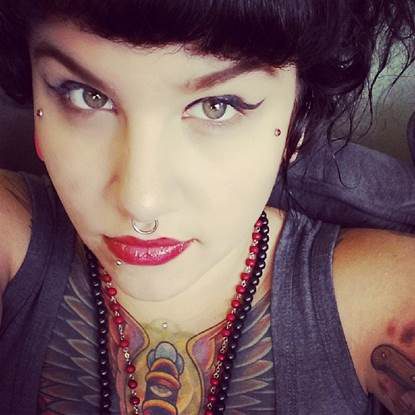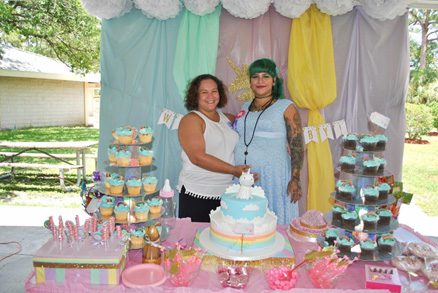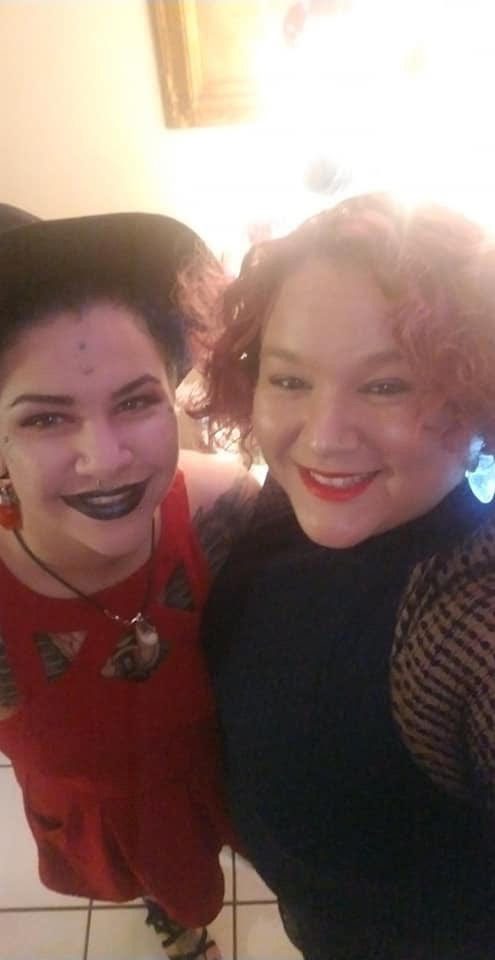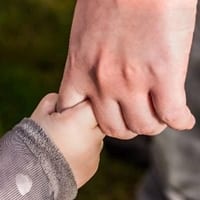Yaya Por Vida
From Personal Pain to Meaning and Purpose
Yaya Por Vida takes compassion to the streets
It takes a particular kind of strength to turn personal tragedy into a force for good—the kind Yamila Rollan Escalona possesses. In December of 2019, her younger sister Yaritza (better known as Yaya) died of a drug overdose after a long fight against substance use disorder. To honor Yaya’s memory, and to help others struggling with substance use disorders, she founded Yaya Por Vida, a non-profit helping those seeking recovery, those in treatment, in active recovery, as well as families dealing with a struggling loved one, or those that have suffered the loss of a loved one due to SUD. Yaya Por Vida conducts trainings that teach others how to intervene with Naloxone to protect the life of someone overdosing on opioids including fentanyl, as well as “art as healing” programs and care kit drops for the houseless in the local Miami community. We caught up with Yamila to ask her about her program, and how Impact Deposits Corporation has helped support the cause.
What was your relationship like with your sister Yaya?
You know, we were six years apart. She always wanted to do everything that I was doing at that time and follow in my footsteps. But as she got older, she wanted to march to the beat of her own drum. She wanted to be independent. She wanted to be known for her uniqueness. She didn’t want to live in anybody’s shadow. She was just that type of person, free-spirited…but wore her heart on her sleeve. So that was the type of person that she was, and anything that she wanted to do when it came to the arts, nothing would stop her…whether it was tattooing, painting— she even got into cosmetology—anything that had to do with creativity, and making people happy at the same time, that’s what she wanted to do. She was adamant about not working for someone else, number one. And number two, working in the arts was her goal. And honestly, she achieved so much in her short time, even more so than I have. I was in the arts also, and I just couldn’t handle either the competition or just the art world itself. And she just didn’t care. She was very headstrong. Even at her worst moments, she just kept doing her art.
I saw the photographs of her art on your website and the tattoos that she created are such an explosion of color and creativity, and just really beautiful.
It’s funny because she was the type of person that would dress in black all the time. So she was the antithesis of the art that she would put out there. Her art would have every color of the rainbow on the canvas, but she would hate to wear color…like a lot of artists that I know!
How did you come to found Yaya Por Vida in the wake of her death?
I can’t begin to say what compelled me to do this. I think that it was a mix of anger and very deep grief and sadness and frustration. I just didn’t want to see any other family suffer what we suffered. I didn’t want to see another individual suffer the death that she suffered. Overdose is a death that you don’t suffer as an individual. You go just like if you were to go in your sleep, you don’t feel it, but you weren’t meant to die. Really. You didn’t have the intention to die. For most people, it’s completely unexpected. They don’t know what’s in their drugs nowadays. This is not the eighties. This is not the seventies. Fentanyl is in everything. You could be a 14 year old or a 15 year old trying to experiment for the first time. And it’s going to be a Russian roulette nowadays. I’m not saying that I encourage that, but at the end of the day, people are going to do what they’re going to want to do. And if we don’t have the proper protections out there, then this is going to keep happening.
I’ve read on your blog about the outreach programs that you do every month. Giving these kits to homeless addicts enables them to save the lives of their fellow addicts in cases when they have a fentanyl overdose?
Language is important. And I know that a lot of people that are not in this world will use the term addict. We’re also striving to change the language. Why? Because when somebody hears the word addict, they automatically hear, criminal or a loser. Good for nothing. In our webinars we even pose that as a question: when you hear the word addict, what do you think? What’s the first thing that pops up into your head—and everything is negative, right? So when we speak to these folks, we speak to them with the preface that we’re not going to assume that they’re doing drugs or not.
A lot of the folks out on the street don’t necessarily have a drug problem. They have an untended mental illness issue. And sometimes that does co-exist with substance use disorder. So instead of calling folks addicts, we say we understand that you have a substance use disorder, or you are a person that uses drugs recreationally. We also understand that people who use drugs recreationally might not necessarily have a problem. Now, those that do versus those that don’t—the community is very tight-knit. They protect each other. They know that drugs run rampant in the street. So even if they don’t do drugs themselves, they’re willing to help a bystander that’s in the midst of an overdose. They’ll gladly be that person to do that.
What have you learned about substance use disorder from your work with Yaya Por Vida?
A lot of folks that go into addiction, the majority have suffered trauma at an early age. So they come into drug use very early. So their minds kind of emotionally freeze at that moment. Once you’re deciding to come back into the sober world, or wanting to be sober, not use as much, you’re kind of emotionally intelligent from the aspect of a 13 year or a 14 year old. And you might be 30 years old, but your brain has been frozen in that 14 year old mindset.
We have so much stigma to combat when it comes to mental illness as a whole. I see messages on Facebook that say, well, you know, why can someone have Narcan given to them for free, but someone that’s diabetic can’t have their insulin for free? Well, don’t judge the person that’s addicted or the person who may have overdosed. Maybe you might want to take a second look at your healthcare system for a second and ask those people why that is. It’s not the fault of the person in addiction. Why don’t you create advocacy? I think it’s a lack of compassion. Little by little, it’s kind of like chivalry; it’s dead in a way. You don’t see it as much anymore, but that doesn’t mean we can’t keep trying to be more compassionate. And love is the only way that you can put yourself in the shoes of someone in addiction and guide them alongside them, not in front of them, not pushing behind them.
How did you get connected with Impact Deposits Corporation’s support program?
Funny story. A personal friend of mine and her mother are very well connected with Rosie Lopez, who works for Impact Deposits Corporation, and they made this video for me just because they wanted to talk about our mission. They put it on Instagram and it got the attention of Rosie. She saw her video and told my friend she wanted to connect with me. And from that point forward, we just connected off the bat. And it’s been amazing since—she’s amazing. She has a heart of gold and she was on our team even before I even got a chance to speak with her. So she’s a big supporter.
It’s just such a seamless process. It was so quick and you know every quarter we shout you guys out, every moment we receive a check, we shout you guys out! Every moment that we remember that we have to pay for something, we know that these grants that are so helpful are because of you.













